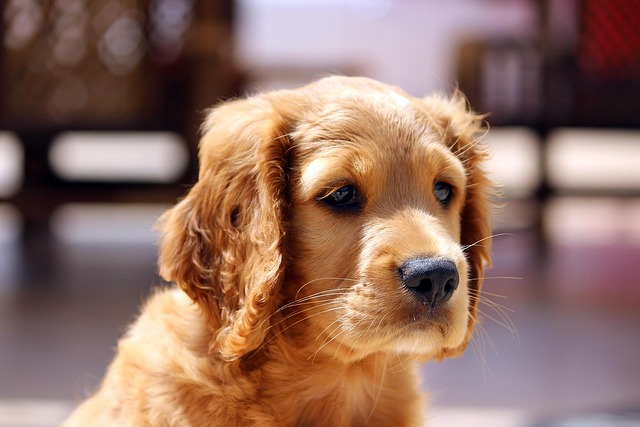
How can I tell if my dog's heatstroke is serious
Let’s be real: It’s a sticky August morning in Los Angeles, and you took your 2-year-old Golden Retriever, Max, for a walk a little later than usual
The arrival of newborn puppies is pure magic. Those tiny, wriggling beans, utterly dependent on their mother, stir something deep inside us. It’s only natural to want to hold them close, to feel that soft fur and tiny heartbeat. But in those first critical hours and days, restraint is the greatest act of love you can show. Mom and her newborns need peace, quiet, and minimal disruption above all else.
Think of the whelping box as a sacred sanctuary in those early hours. Mom is exhausted, her instincts laser-focused on keeping each pup warm, fed, and breathing. Your scent, your touch, even just hovering nearby, can cause her significant stress. An anxious mom might neglect her pups or, in very rare and extreme cases driven by protective panic, harm them. That immediate postpartum period is about observation from a respectful distance, ensuring mom is caring for everyone, not handling.
So, when is it okay? Most experienced breeders and vets advise waiting at least 2-3 days, sometimes longer, for brief, necessary contact. This initial window is usually reserved for essential health checks – making sure each pup is nursing well, is warm, and doesn't have any obvious birth defects needing urgent attention. These checks are done swiftly, calmly, and ideally with mom temporarily distracted by a favorite treat, always under her watchful eye. Your hands must be impeccably clean and warmed thoroughly first. Forget the perfume or scented lotions; strong smells can be overwhelming or even mask the pup's natural scent, confusing mom.
 The first two weeks are a delicate dance. Puppies are blind, deaf, and completely vulnerable. Their primary needs are warmth, mom's milk, and her constant care. While brief, gentle handling for weighing or quick vet checks becomes manageable around days 3-7 onwards, it should always be minimal, purposeful, and done with mom's comfort as the priority. Responsible breeders deeply understand this balance, knowing that respecting mom's space and instincts directly impacts the litter's health and her wellbeing. It’s also simply good practice under many animal welfare guidelines that prioritize minimizing stress.
The first two weeks are a delicate dance. Puppies are blind, deaf, and completely vulnerable. Their primary needs are warmth, mom's milk, and her constant care. While brief, gentle handling for weighing or quick vet checks becomes manageable around days 3-7 onwards, it should always be minimal, purposeful, and done with mom's comfort as the priority. Responsible breeders deeply understand this balance, knowing that respecting mom's space and instincts directly impacts the litter's health and her wellbeing. It’s also simply good practice under many animal welfare guidelines that prioritize minimizing stress.
Around week 3, a beautiful shift happens. Their eyes open, little ears start working, and they begin the wobbly journey of exploration. This is when positive, gentle human interaction becomes not just okay, but incredibly beneficial. Short, calm sessions of holding, light stroking, and soft talking help them associate human touch with warmth and security. Keep these sessions brief at first, always supervised, and crucially, let the puppies initiate or easily retreat if they feel unsure. It’s about building trust, not forcing affection. This early socialization is foundational for confident, well-adjusted dogs.
Touching newborn puppies isn't about a strict countdown on a calendar. It’s about deep respect for the mother dog’s instincts, the profound fragility of those first days, and prioritizing the wellbeing of the entire litter above our own desire to cuddle. Waiting those few crucial days, handling only when truly necessary and always with immense care, shows true love. When the time is right, those moments of gentle connection, as they begin to discover the world, become all the more precious and rewarding. Patience, in this case, truly is the greatest gift you can give.

Let’s be real: It’s a sticky August morning in Los Angeles, and you took your 2-year-old Golden Retriever, Max, for a walk a little later than usual

You're enjoying a summer afternoon at the park when you notice your dog has stopped panting and appears disoriented - their gums are bright red

Let’s paint the picture: You’re in your Denver apartment, watching your 4-year-old Boston Terrier, Ruby, plop down mid-play session with her favorite toy

Many dog owners notice their pets nails seem shorter after regular walks,but how much does this daily activity actually help?The answer depends on where you walk—concrete sidewalks or asphalt streets gently file nails as a dog's paws hit the ground

Most dog owners notice their pup scooting across the carpet at some point, but few connect it to impacted anal glands. These small sacs near a dog’s rectum secrete a scent for marking territory

Most vets agree that regular dog teeth cleaning is key to avoiding painful dental issues later. For healthy adult dogs, a professional cleaning at the vet’s office every 12 to 18 months usually works well.